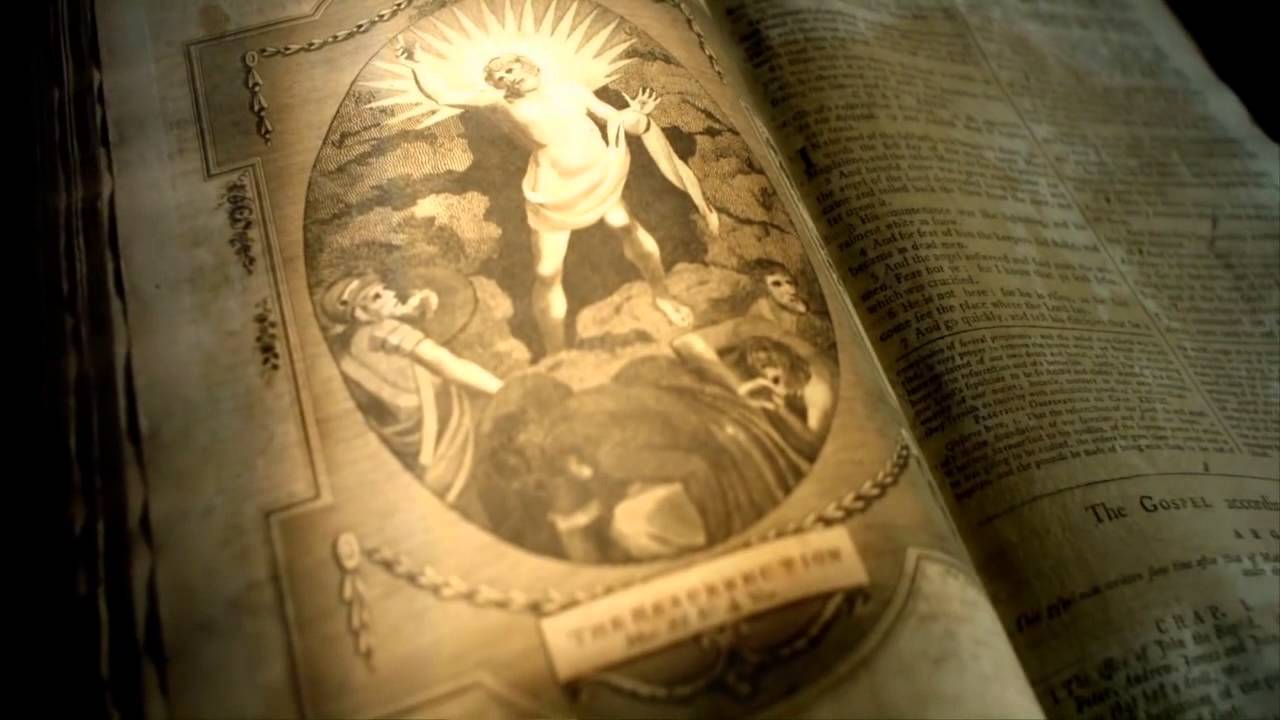It is acknowledged that the Christianity of today is based on the combined doctrines of various mystery religions in the ancient world. The doctrines of the “Trinity” and “incarnation” were borrowed from the pagans. In fact, the whole religion was fabricated after the departure of Jesus. The legendary stories of “man-god” saviors dying for the sins of their people (and rising three days later) were commonly propagated as a feature in the prevailing Roman cults of the day. It is interesting to note that in the apocryphal writings of the Gospel of the Nazorenes, the following was attributed to Jesus(P) which ran contrary to the beliefs of the modern-day Christians.
Jesus was teaching his disciples in the outer court of the Temple and one of them said unto him : Master, it is said by the priests that without shedding of blood there is no remission. Can then the blood offering of the law take away sin ? And Jesus answered : No blood offering, of beast or bird, or man, can take away sin, for how can the conscience be purged from sin by the shedding of innocent blood ? Nay, it will increase the condemnation.
Gospel of the Nazorenes, Lection 33, verses 1 – 2
The Christianity that we know today simply plagiarized the stories and foisted them upon Jesus(P).
Tom Harper writes :
The divine teacher is called, is tested by the “adversary”, gathers disciples, heals the sick, preaches the Good News about God’s kingdom, finally runs afoul of his bitter enemies, suffers, dies, and is resurrected after three days. This is the total pattern of the sun god in all the ancient dramas.
Tom Harper, The Pagan Christ, p. 145
A very important part of the pagan faiths was the belief in a god who was young and handsome and was supposed to have died or mutilated himself for the sake of mankind.
It seems that Jesus was actually the Sun of God, and not the “Son of God”, yet both of these titles are pagan, ascribed to Jesus after his departure. No wonder that the early Christians of Egypt were accused of sun worship. Jesus rejected the title “Son of God“
The authentic hadith says :
Narrated ‘Umar : “I heard the Prophet saying, “Do not exaggerate in praising me as the Christians praised the son of Mary, for I am only a Slave. So, call me the Slave of Allah and His Apostle.“
Sahih Bukhari, Kitab Bhavan, New Delhi, India, 1987, translated by M. Khan, Volume 4, Book 55, Number 654
Jesus(P) was sent by God to preach the Gospel and Torah to the Children of Israel. He was a Prophet and Messenger of God who claimed no divinity. He was transformed into God after his departure at the Council of Nicea, the pagan Emperor Constantine made the decree, yet Jesus said “The Father is greater than I“
The “Christians” corrupted the teachings of Jesus after his disappearance ; they replaced the Gospel of Jesus with the corrupted Gospel of Paul. Christianity today is indeed the Gospel of Paul, the corrupter of the Gospel of Jesus. What is the significance for our faith and for our religious life, the fact that the Gospel of Paul is different from the Gospel of Jesus ?
The attitude which Paul himself takes up towards the Gospel of Jesus is that he does not repeat it in the words of Jesus, and does not appeal to its authority….The fateful thing is that the Greek, the Catholic, and the Protestant theologies all contain the Gospel of Paul in a form which does not continue the Gospel of Jesus, but displaces it.
Albert Schweitzer, The Quest for the Historical Jesus
It is the consensus of the scholars that where the origins of Christianity is concerned, it can be invariably be summed up as follows :
Christianity began as a cult with almost wholly pagan origins and motivations in the first century, “and by the fourth it had utterly turned its back on Paganism and repudiated very hint of…connection with it, loading it with contempt from that day to this.
Tom Harper, op. cit., p. 51
Thus it is clear that :
The worship of suffering gods was to be found on all sides, and the belief in the torture of the victims in the rites of human sacrifice for the redemption from sin was very general. The gods Osiris, Attis, Adonis, Dionysos, Herakles, Prometheus, and others, had all suffered for mankind ; and thus the Servant of Yahweh was also conceived as having to be wounded for’ men’s transgressions. But as I say, this conception had passed into the background in the days of Jesus”
Arthur Weigall, The Paganism in Our Christiantiy, 1928, p. 106
A very important part of the pagan faiths was the belief in a god who was young and handsome and was supposed to have died or mutilated himself for the sake of mankind.
From the Islamic perspective, Mawdudi concludes as follows :
The false tendencies, born of centuries of deviations, ignorance and malpractice, now took another form. Though they accepted their Prophets during their lives and practiced their teachings, after their deaths they introduced their own distorted ideas into their religions. They adopted novel methods of worshipping God ; some even took to the worship of their Prophets. They made the Prophets the incarnations of God or the sons of God ; some associated their Prophets with God in His Divinity.
Abdul Ala Mawdudi, Towards Understanding Islam, p. 39
And certainly, only God knows best ! 


